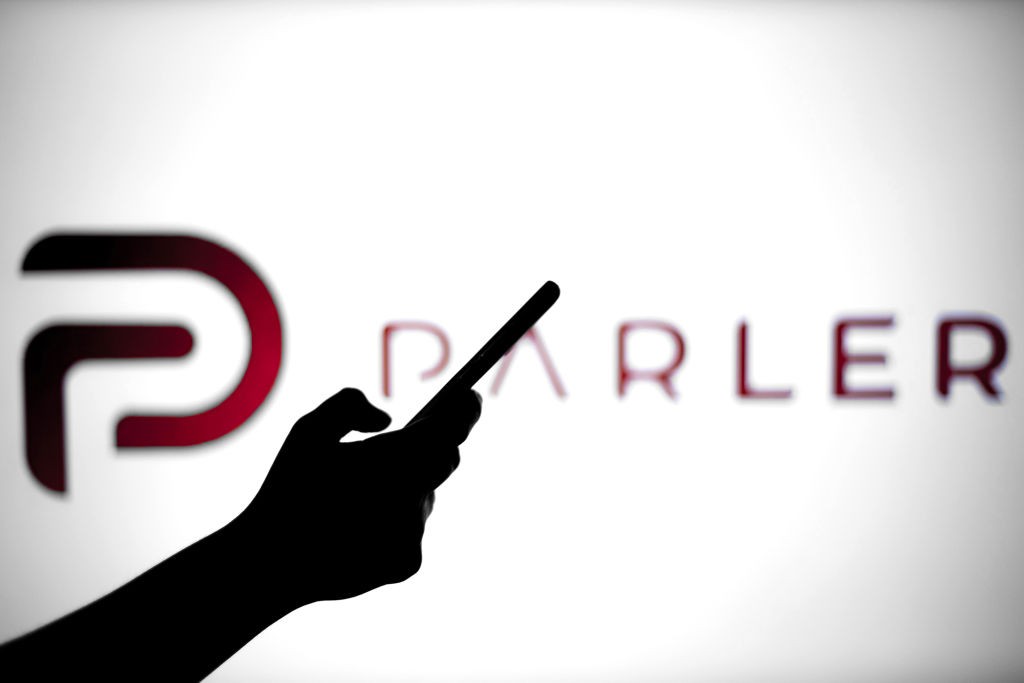
Source: SOPA Images / Getty
Beginning April 26, after a little more than three months of being banned from Apple’s App Store, Parler will be made available again to iOS users, after claiming it has now “worked to put in place systems that will better detect unlawful speech and allow users to filter content undesirable to them while maintaining our strict prohibition against content moderation based on viewpoint.”
However, per the statement from Parler, users who access the platform via other means can still enjoy their feeds uncensored. “While the App Store version of Parler will prohibit some posts that Parler allows,” the company said in a statement, “those posts will still remain visible on the web-based and Android versions of Parler.”
The “alternative to Twitter” was implicated in coordinating the January 2021 U.S. Capitol storming and summarily removed from Apple’s App Store. It was also taken down from the Google Play Store and banned from using Amazon Web Services’ hosting capabilities.
As of this article’s publishing, Parler is still not available through the Google Play store nor hosted by AWS any longer. However, the app was able to secure independent hosting arrangements in February, and the company is still mired in a losing legal fight with Amazon.
For its part, though, Apple did not release any specific information on how Parler will monitor what is transmitted. But it did confirm “that [Parler’s] proposed updated app will be approved for reinstatement to the App Store.”
Unlike platforms such as Facebook and Twitter, which have been accused of policing real free speech and prejudicially advancing left-leaning agendas, Parler touts itself as the app where people can hold “real conversation on the world’s premier free speech platform.”
In 2019, then-CEO John Matze saw his platform as a genuinely free space for discussion, and not the right-wing’s anti-Twitter as promoted by a number of mass media outlets. “If you’re going to fight these peoples’ views, they need to be out in the open,” he told The Forward. “Don’t force these people into the corners of the internet where they’re not going to be able to be proven wrong.”
Last June, after President Trump received a fifth warning label for one of his tweets, Sen. Ted Cruz actually went on Twitter to announce his move to Parler because it was “a platform [that] gets what free speech is all about.”
Even Twitter CEO Jack Dorsey acknowledged the danger of social media controlling who is permitted to have a voice and dictating who sees what. After permanently banning Trump from Twitter this past January 8, he promptly noted that his own ability to swing a double-edged sword of that size “sets a precedent I feel is dangerous: the power an individual or corporation has over a part of the global public conversation.”
















